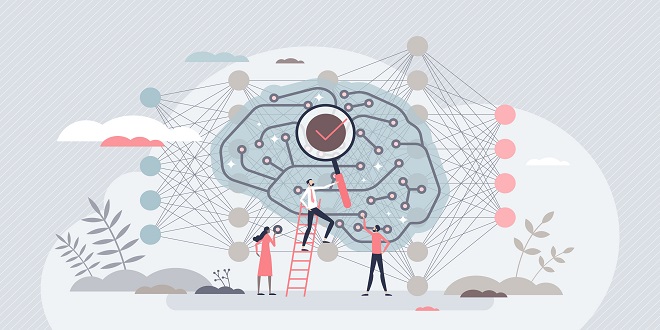Deep Learning vs Artificial Intelligence: Which Is More Effective For Businesses?

The terms ‘artificial intelligence’ and ‘deep learning’ are discussed regularly in the world of business and development, but it can sometimes be difficult to identify where these two areas overlap and how their functionality can be implemented across organizations to improve their performance. In this article, we’ll be discussing the differences between AI and deep learning to help you understand which area may be more effective for your business growth.
What Makes Deep Learning and AI Different?
While it is easy to consider deep learning and artificial intelligence as two sides of the same coin, these functionalities are different in the way they are programmed to behave.
- AI is a field of study in which machine engineers work to mimic the human brain in their program development. This means that machines can make decisions on their own based on the data they receive, which theoretically leaves more time for humans to complete tasks that cannot be automated in this way. AI was an early model of what has branched out in recent years into various functions like machine learning.
- By contrast, while deep learning was developed as a subfield of machine learning, an AI function, it is an area in which complex algorithms program machines to think like the human brain by mimicking the neural pathways that humans have naturally, rather than simply taking on the main cognitive functions. This creates machines that can evolve quickly depending on the information they receive and how this translates through their technology, but that still work differently to traditional AI solutions.
Benefits Of Deep Learning Technology
As an evolution from traditional artificial intelligence, companies who choose to use technology to advance their business tend to prioritize deep learning due to the many benefits that it can bring to an organization, including:
- Increased Efficiency
By taking on the burden of many functions that traditionally would have been completed by humans, like data analysis and tracking, deep learning allows employees to focus on key business practices, increasing efficiency and productivity.
- Improved Data Security
As deep learning takes on the responsibility of many digital tasks, it provides improved data security by reducing the risk of data breaches and automatically highlighting any anomalies.
While artificial intelligence shares these benefits to some degree, the level at which deep learning can integrate with business technology and is continually advancing makes it a popular choice for those wishing to optimize the ability of their tech.
How To Implement Effective Deep Learning Solutions Across Your Business
Implementing deep learning functionality in your business is a great way to increase efficiency and boost customer trust by improving your data security. To go about this, consider fitting your office out with Lenovo Deep Learning PCs that can improve your workstations and greatly benefit your business overall.
While it can be tricky to understand the differences between AI and deep learning, the key consideration to keep in mind when navigating the new digital era is that deep learning takes an extra step into the world of automation and security. If you’re looking to drive business performance and improve the quality of your service, then deep learning is the way to go.





